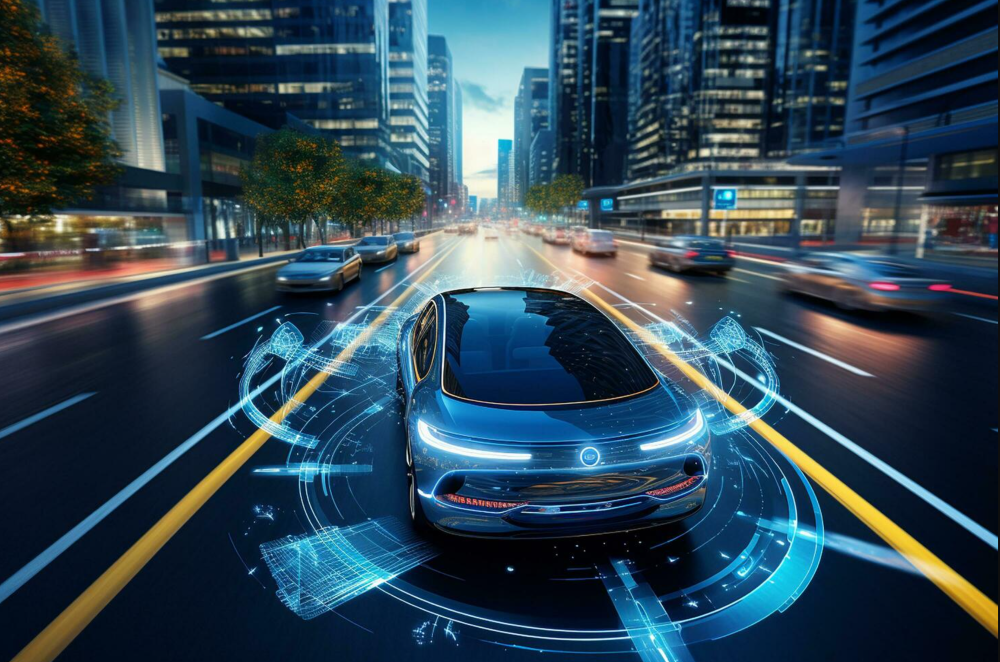Smart Cars: The Extraordinary Innovation Set to Revolutionize Driving Forever!

In today’s tech-driven world, smart cars are revolutionizing driving with their advanced technology. These smart vehicles are transforming our driving experience by enhancing safety, efficiency, and convenience. This blog explores the different types of smart cars, their self-driving features, and their impressive capabilities, illustrating how they are setting new standards in transportation.
Types of Smart Cars
Smart cars come in various categories based on their level of automation and functionality:
- Basic Smart Cars: Equipped with essential driver assistance features like adaptive cruise control and lane-keeping assistance. While they support the driver, full control remains with the driver.
- Advanced Driver Assistance Systems (ADAS): Offer more sophisticated features such as enhanced parking assistance and automatic lane changing. These smart cars handle more driving tasks autonomously, though human intervention is still necessary.
- Semi-Autonomous Vehicles: These smart vehicles can operate autonomously in specific conditions, particularly on highways, optimizing routes and managing traffic while requiring the driver to be ready to take control if needed.
- Fully Autonomous Vehicles: The most advanced smart cars, which handle all driving tasks without human input, using sensors, cameras, and AI to navigate complex environments.
How Self-Driving Works
Self-driving technology relies on several key components:
- Sensors and Cameras: Provide a 360-degree view of the surroundings, detecting obstacles and road conditions.
- Lidar (Light Detection and Ranging): Creates detailed 3D maps of the environment to help the smart car understand its location and surroundings.
- Radar: Detects objects at longer distances and in various weather conditions, providing data on the speed and movement of other vehicles.
- Artificial Intelligence (AI): Processes data from sensors and cameras to make real-time driving decisions, improving over time with machine learning.
- Connectivity: Enables V2X (Vehicle-to-Everything) communication, allowing interaction with other smart vehicles, infrastructure, and traffic systems to enhance coordination and efficiency.

Range and Capabilities
Smart cars offer varying ranges based on their technology:
- Basic and ADAS Vehicles: Have a range similar to conventional cars, relying on human driving with assistance features.
- Semi-Autonomous Vehicles: Capable of extended autonomous operation, especially on highways, optimizing routes and managing traffic.
- Fully Autonomous Vehicles: Can drive several hundred miles on a single charge or tank, with advanced models like Tesla’s FSD beta offering extensive highway and urban capabilities.
- Economic Advantages of Smart Cars
Economic Benefits
Smart cars offer several economic benefits:
- Fuel Efficiency: Many smart cars achieve impressive mileage, such as around 67 miles per gallon, leading to substantial fuel savings.
- Electric Models: Some smart vehicles are 100% electric, avoiding fuel price fluctuations and scarcity issues.
- Low Ownership Costs: Generally cheaper to maintain and repair compared to conventional vehicles.
- Affordable Insurance: Lower insurance premiums due to advanced safety features and lower repair costs.
Protecting Your Smart Car
Ensure your smart car’s security with these key measures:
- Regular Software Updates: Keep your vehicle’s software current to address vulnerabilities.
- Strong Passwords and Authentication: Use strong, unique passwords and enable multi-factor authentication.
- Secure Communication: Encrypt communication systems and avoid public Wi-Fi for vehicle-related activities.
- Anti-Theft Features: Utilize remote locking and tracking systems.
- App Caution: Download apps only from reputable sources and avoid risky third-party applications.
- Regular Security Checks: Conduct periodic audits of your vehicle’s systems.
- Physical Security: Employ traditional methods like parking in well-lit areas and using steering wheel locks.
The Role of Polarbackup in Data and Time Management
- Reliable Data Protection: Secures critical data from loss due to system failures or accidental deletions
- Efficient Recovery: Rapid data recovery minimizes downtime and operational disruptions.
- Automated Backups: Reduces manual tasks with scheduled backups, ensuring data is always up-to-date.
- Centralized Management: Simplifies data organization and access through a single platform.
- Cost-Effective Storage: Scalable storage solutions optimize costs as data grows.
- Enhanced Security: Uses encryption and secure access to protect data.
- Reduced Overhead: Automates backup tasks, freeing up IT resources for other priorities.
Conclusion
Smart cars are transforming driving with cutting-edge technology, boosting safety and efficiency while offering economic benefits like better fuel economy. Ensuring their security through updates and protective measures is vital. Solutions like Polarbackup also underscore the importance of safeguarding data. The future of driving is here, and it’s smarter than ever.
